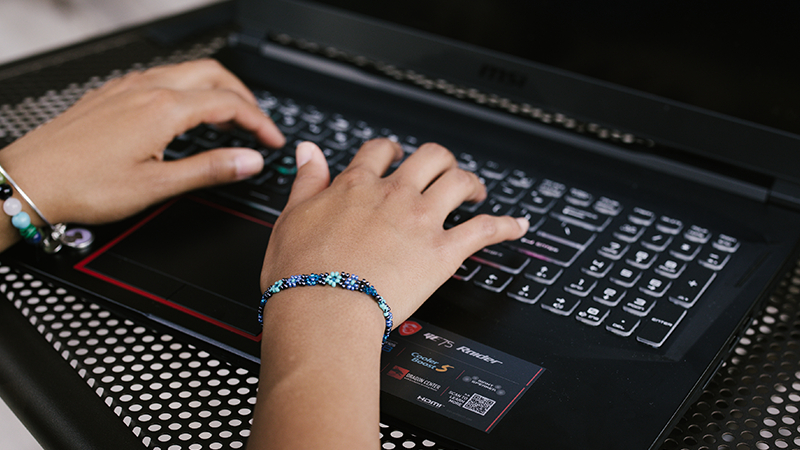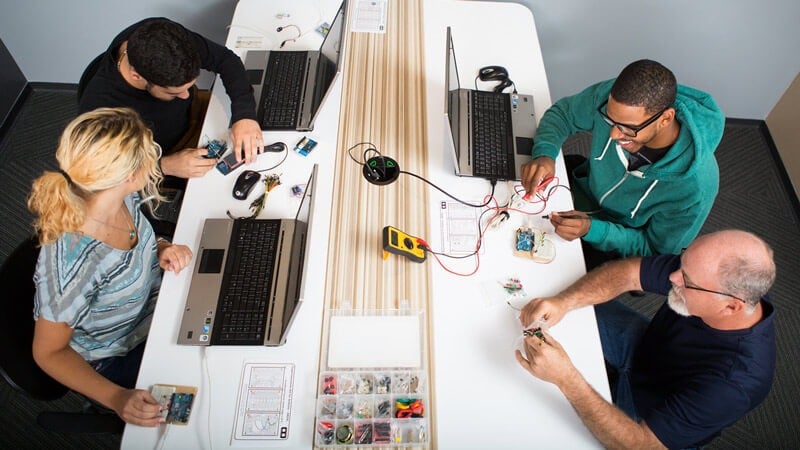Full Sail
The Future of Sports Broadcasting: How Full Sail’s New Sportscasting Degree Embraces What’s Next
Full Sail’s newest degree program is looking ahead to the future of sports broadcasting, preparing students for careers in an ever-evolving media landscape.
We’ve entered a new and exciting era of sports culture, one centered around the stories that occur both on and off the field.
It’s these stories that deepen the bond between fans and the sports that they love. And for those looking to break into sportscasting, it’s created a steady flow of opportunity.
“The current state of the sports entertainment industry is heavily focused on specialization and personalization,” says Gus Ramsey, Program Director of Full Sail University’s Dan Patrick School of Sportscasting. Gus comes to Full Sail with more than 20 years of producing experience with ESPN, and he’s planning on using his deep ties to the industry to bring a host of broadcasting luminaries and experienced professionals with him to serve as faculty.
“It’s about making connections,” he continues. “The more personal you can get with someone, the more you’re able to connect with them. And they, in turn, will become more invested in the game.”
Full Sail’s newest bachelor’s program aims to provide a comprehensive overview of the sportscasting industry – from writing for broadcast to fundamentals of production. Created in collaboration with legendary sportscaster Dan Patrick, the program focuses heavily on elements of storytelling in an attempt to build those all-important connections with fans.
“I tell people to be curious,” says Dan, speaking during an exclusive on-campus Q&A with students. “If you’re curious, you’re never going to go wrong. But if you feel like you got all the answers, it’s not going to be a great interview. There are so many small, simple things in this business that I don’t think are taught. And that’s what we want to help you with.”
“We want to offer fans a 360-degree perspective,” adds Gus. “Fans want to know about all the issues, and those might be social, political, or health-related, in addition to what’s happening on the field.”
To that end, the sportscasting degree includes foundational courses in public relations and diversity in media. On one hand, the curriculum is decidedly journalistic, but there’s another aspect of it that is just as important when it comes to telling great stories: taking fans beyond the sidelines and immersing them right in the thick of the action.
Last year, The NCAA released a virtual reality app for the Gear VR in partnership with CBS, Intel, and Oculus. The app was so successful that they brought it back for the 2017 season. It’s a trend that we’re going to see more of, says Gus, which is why he and his team are embracing emerging technologies within the curriculum.
“We have the ability to put the viewer on the field inside the huddle at a football game. But what does that mean for the person who spent hundreds of dollars on a front row ticket to the game? How do we properly monetize and present these experiences? We as a program have a say in how that technology gets implemented.”
Ultimately, the goal of the program goes beyond preparing a new generation of sportscasters for today’s media landscape. It’s to empower them with the tools to evolve that landscape – and the lives of so many fans – for the better.
Whether you’re ready to apply or just want to learn more about Full Sail University, our Admissions Representatives are here to help. Call us or request more information.

